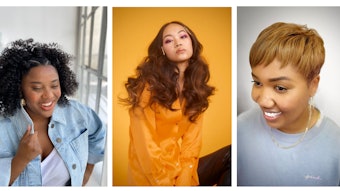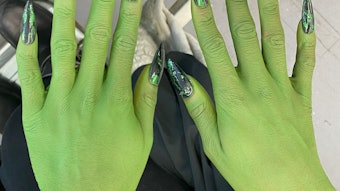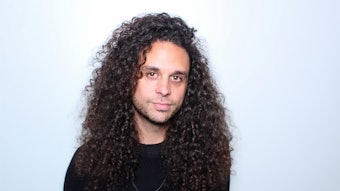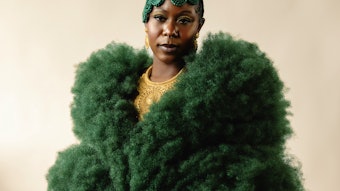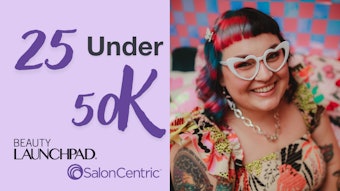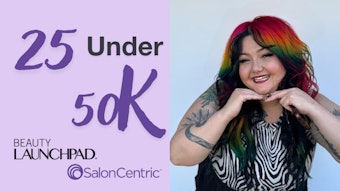
Stylists are in the unique position to observe and point out emerging scalp-related issues—which in turn can initiate a domino effect of positive impacts on overall hair health. “As stylists, we’re responsible for bringing up scalp issues and/or changes we see developing,” asserts Nioxin top artist Sofia Flores (@foreveryounngg). “An essential tool to utilize in starting the conversation is a consultation—you want to keep an eye out for anything outside of a healthy, supple scalp.”
Detect and Protect
Looking to identify and treat the most common scalp concerns? Start by brushing up on basics like psoriasis, alopecia and dandruff. “Signs of psoriasis include a patchy and sometimes scaly rash-looking appearance,” notes BosleyMD certified trichologist Gretchen Friese (@gretchen_at_foushee). “Alopecia may be detected by significant hair loss, while dandruff creates white flakes on the scalp and in hair.”
Flores explains that psoriasis usually causes a buildup of skin cells, which can form itchy patches on the scalp and other areas of the body. “On lighter skin tones, psoriasis typically appears as pink or red patches with silvery white scales; on darker skin tones, it’s more likely to appear as dark brown or purple patches with gray scales,” Flores details. “With alopecia, men and women are most often affected in the crown and frontal areas of the scalp, but typically, the hair loss is more diffuse in women than in men—women rarely develop completely bald areas.” Finally, dandruff has various causes, from a fungus to overproduction of sebum (oil generated by the scalp’s sebaceous glands), leading to itchiness and large flakes that are yellow or white. Scalps also commonly suffer from general dryness—a different issue than dandruff.
Flores notes that alopecia is most often caused by a genetic predisposition, though other health issues, medications, stress or malnutrition can also play a role. “Psoriasis is a chronic condition with symptoms that may worsen at times and then improve,” she explains. “It’s an autoimmune disease that can cause an increase in cell growth.”
As an autoimmune issue, psoriasis should be treated by a doctor, but Friese believes that some types of alopecia can be helped at home with topical products designed for treating hair loss. And dandruff, which relates to an imbalance in the scalp’s pH, can be tamed with products that contain ingredients like activated charcoal and pyrithione zinc. “Dry scalps need moisture, so moisturizing masks are a good at-home remedy,” Friese adds. “To slough off dead skin, a scalp scrub works wonders.”
Flores, too, recommends in-salon and at-home treatments—preferably free of parabens, sulfates, colorants and fragrance. She advises a topical product with minoxidil to her clients with alopecia, while in-salon, a once-monthly dermabrasion treatment helps renew the skin’s surface. “I suggest this as a deep-cleanse—like a facial for the scalp,” Flores explains.
Scalp Solutions
Innersense Organic Beauty True Enlightenment Scalp Scrub invigorates and renews the scalp with volcanic clay-rich Hawaiian red salt, apple fruit, peppermint oil and tea tree oil extract. @innersenseorganicbeauty
Soothing and exfoliating, bamboo charcoal-infused BosleyMD Rejuvenating Scalp Scrub detoxifies, moisturizes and invigorates, gently removing debris and buildup from the scalp and hair. @bosleymd
Featuring rose flower and lavender oils, Kevin.Murphy Scalp.Spa Serum is a lightweight, fast-absorbing leave-on treatment that provides targeted, soothing and balancing relief for irritated scalps. @kevin.murphy
John Paul Mitchell Systems Tea Tree Scalp Care Anti-Thinning Shampoo gently cleanses and primes the scalp with pea peptides, turmeric and ginseng for thicker-looking, stronger strands. @teatreehaircare
The three-part Nioxin Scalp Relief System Kit includes shampoo, conditioner and serum infused with aloe vera to soothe sensitive scalps while helping thicken tresses. @nioxin

